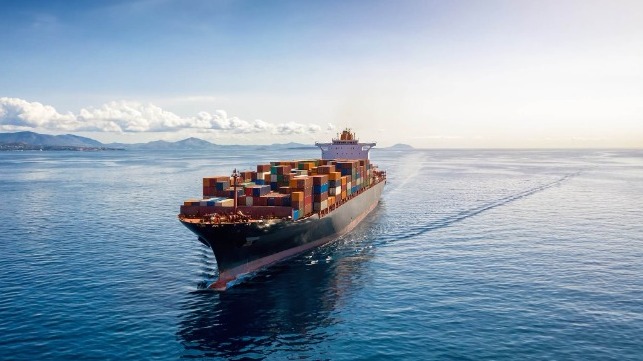Ocean Carriers Propose "Feebate" Carbon Levy With Annual Increases

The World Shipping Council, the industry body for ocean carriers, has joined the call for a "feebate" bunker tax-and-subsidy program - but with a new twist.
The idea of the "feebate" is straightforward: fossil bunker consumers pay a levy, and the proceeds are used to subsidize the price of expensive green fuels. This makes green fuels more competitive on the market and paves the way for broader commercial adoption.
The International Chamber of Shipping has proposed what may be the best-known feebate structure. ICS' levy would start at an initial $20-40, and would remain at that level until IMO member states vote to raise it, without an automatic mechanism to increase fees over time.
WSC's bunker levy would start at a comparable level, but would increase automatically to match the expansion of the green-fueled fleet.
For example, if the subsidy were paid out at a constant $267 for every tonne of CO2 saved, and 10 percent of the fleet ran on green fuel, fossil bunker buyers would pay a levy of $34 per tonne of CO2 emitted to cover the subsidy's costs worldwide.
As green shipping grows to 20 percent of the fleet, the bunker levy would rise to $67. This would cover the extra cost of paying the same subsidy to more ships. The levy would be recalibrated in this manner every year, providing "pay-go" funding for the program.
In the near term, a feebate structure would assist the green fuel initiatives of container ship owners, who have led the way in developing the first wave of decarbonized vessels. Alternative-fueled propulsion is less common in the bulker and tanker sectors, and the orderbook for these vessel classes shows less momentum towards greener options.

that matters most
Get the latest maritime news delivered to your inbox daily.
“Collective action is vital for the liner shipping industry in striving toward decarbonization," said K.H. Wu, CEO of Taiwanese carrier Evergreen, which has 24 methanol dual-fuel container ships on order. "It is essential to have a new approach to greenhouse gas pricing that would drive demand for cleaner fuels from the start of the transition."
IMO will be debating a range of "economic measures" for controlling greenhouse gas emissions at MEPC 81 in March, including the ICS and WSC proposals.
